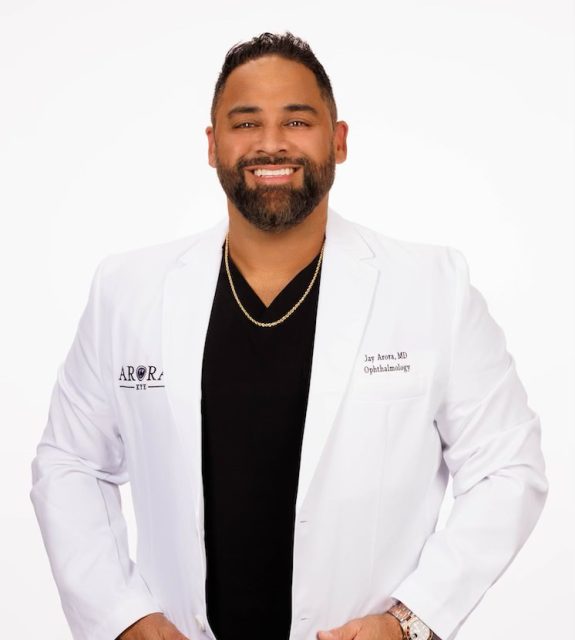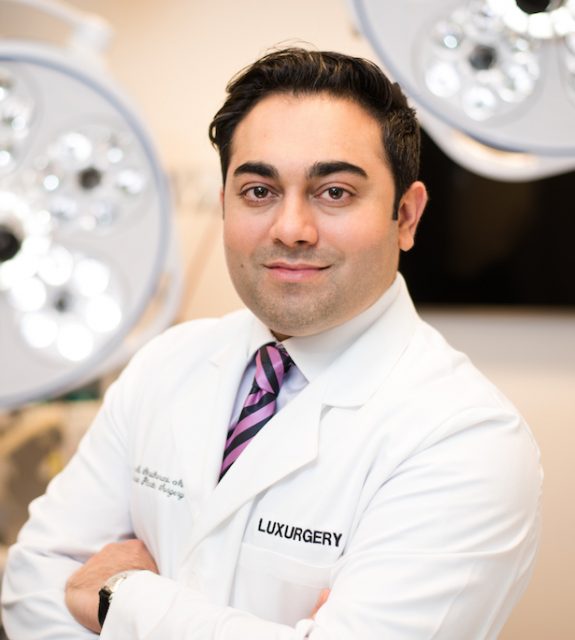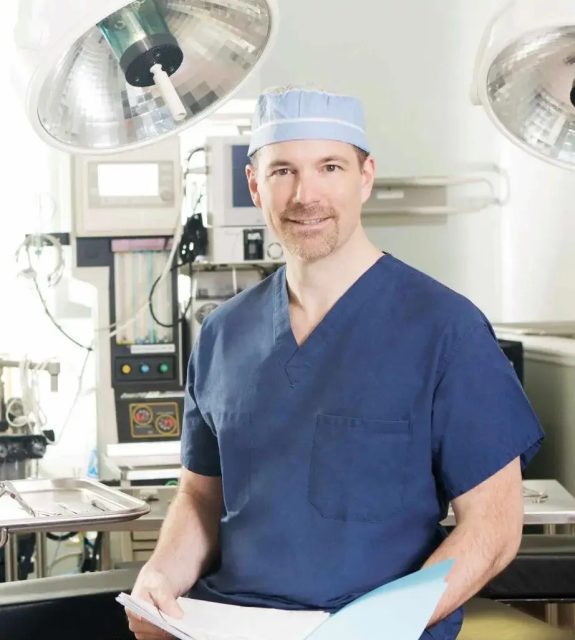Dr. Jason Bloom is an award-winning, Ivy-League trained, double board-certified facial plastic & reconstructive surgeon. His extensive experience and reputable training provide the foundation for his excellent technical skills and surgical aesthetic. He is dedicated to the treatment of patients with both cosmetic concerns and reconstructive problems of the head and neck. Dr. Bloom is one of the few surgeons in the country who has gone through such rigorous and prestigious training, including board certification from the American Board of Otolaryngology-Head & Neck Surgery and a fellowship and board certification with the American Board of Facial Plastic & Reconstructive Surgery. Haute Beauty Expert Dr. Jason Bloom highlights the new cutting-edge technology that is being used to advance rhinoplasty results.
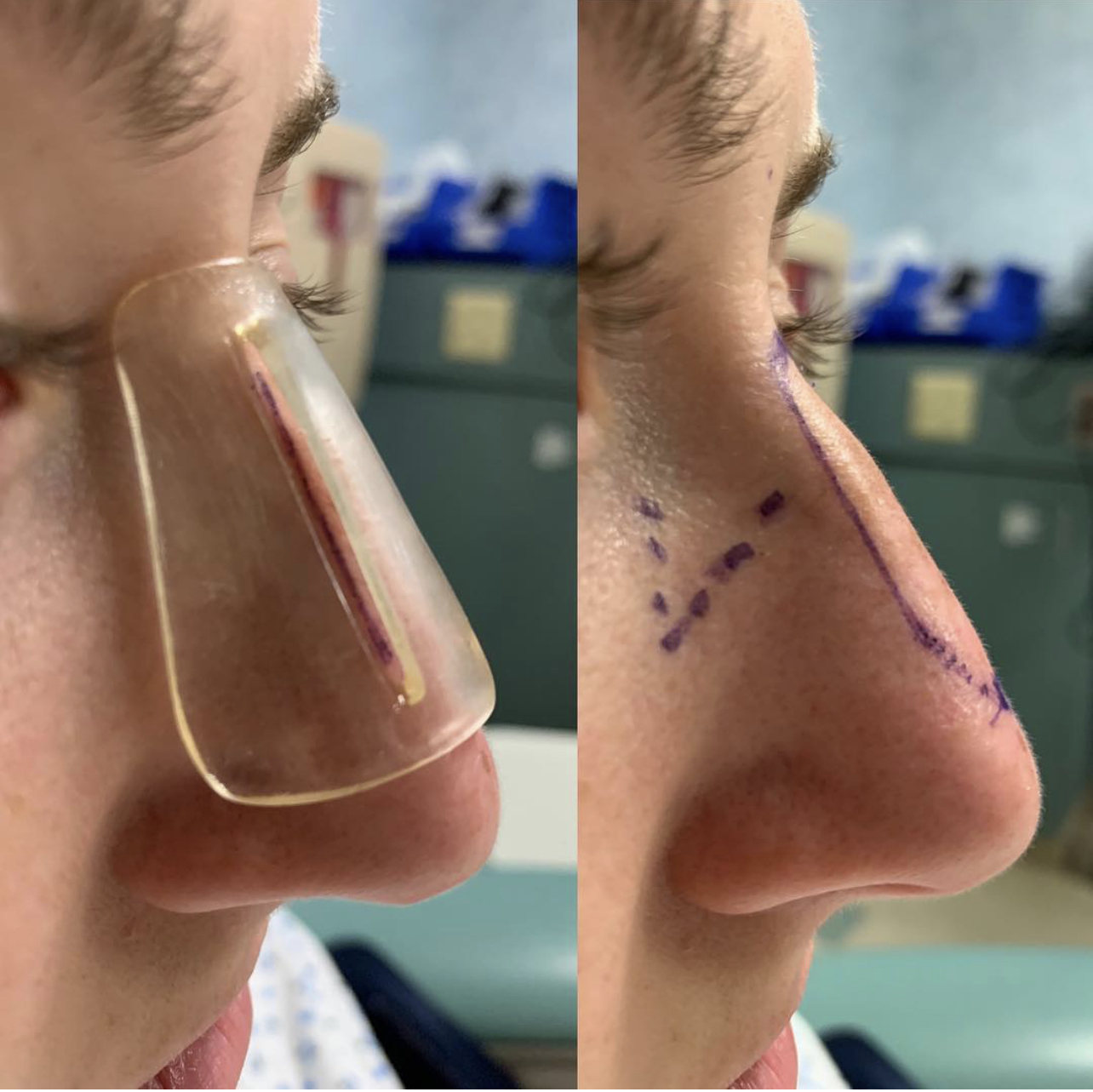 Photo Credit: Courtesy of Dr. Jason Bloom
Photo Credit: Courtesy of Dr. Jason Bloom
Rhinoplasty is a surgical art that marries technical skill and mastery of the nasal anatomy with the aesthetic sense to produce a balanced and harmonious nose and profile. In the past, the rhinoplasty surgeon had to estimate where the height of the nasal bridge would need to be set, based on conversations with the patient and possibly some computer imaging. Additionally, once the surgery was over and the nasal splint from the surgery was removed around 1-week post-op, the surgeon had to decide if the nose should be taped (especially in thick-skinned patients) and how the skin-soft tissue envelope should be controlled to press out the swelling from the surgery and help the patient recover faster. Now, with the help of some computer-aided technology, the “guess work” of determining the bridge height can be eliminated and a rapid post-op recovery can be achieved.
Dr. Bloom has consulted with and worked with a company called MirrorMe3D to help develop surgical guides and post-op splints that he uses to improve his operative results and the patients’ recovery. It all starts during the consultation process, where 3D photographs will be taken of you and computer morphing/imaging is performed with the Canfield Vectra 3D imaging system. This is where Dr. Bloom will combine the information the patient has given him with his own expertise to show patients what their projected results will look like. This is an important step in order to align what the patient wants and what Dr. Bloom can achieve.
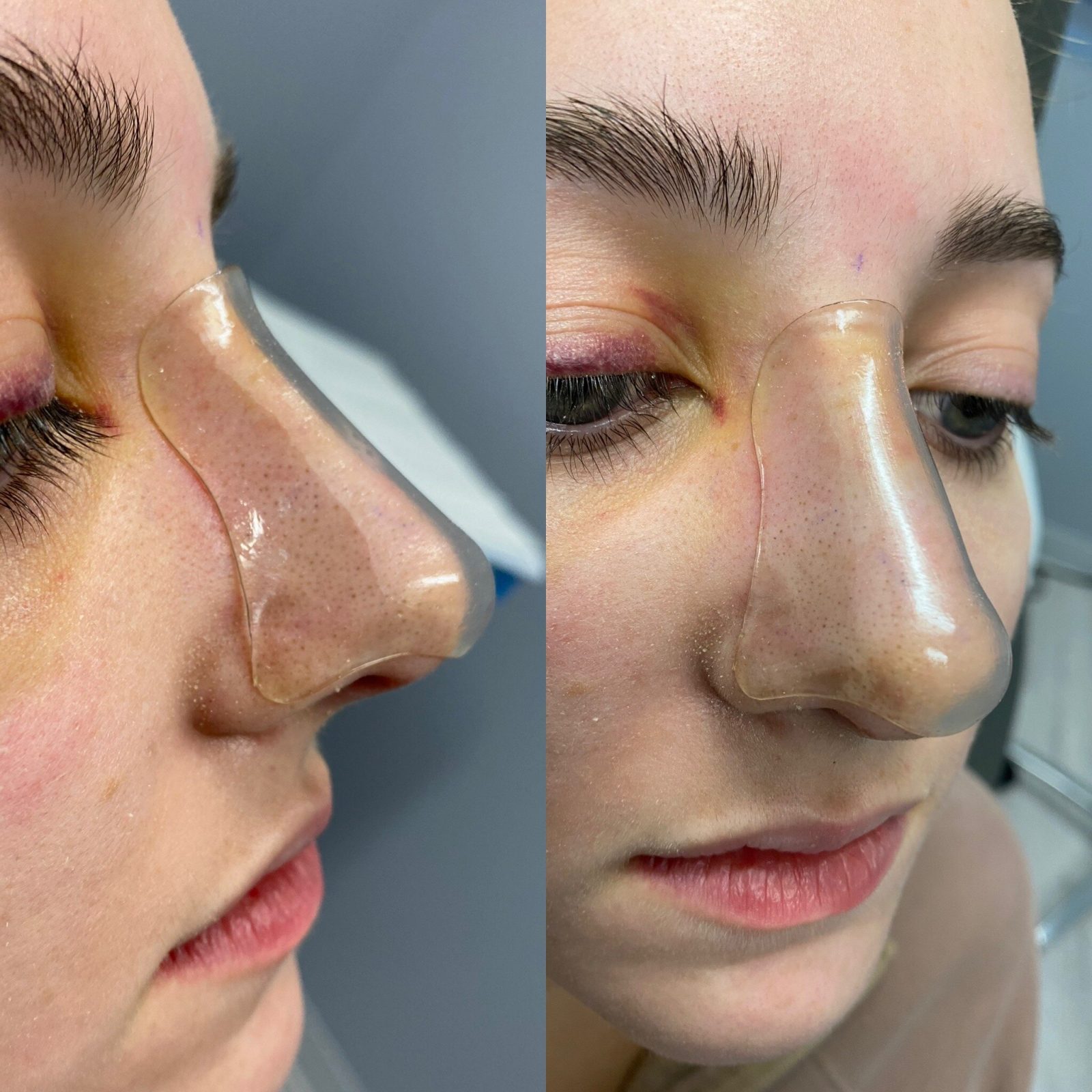 Photo Credit: Courtesy of Dr. Jason Bloom
Photo Credit: Courtesy of Dr. Jason Bloom
That 3D information is then sent to MirrorMe3D where they create a personalized osteotomy marking guide that is used to mark the patient in the pre-op holding area. That guide shows the exact level that the bridge should be brought to in order to achieve the previously discussed outcome. The marking guide helps with the accuracy of the marking and provides confidence about the precision of the imaging.
Additionally, the same 3D information sent to MirrorMe3D is used to create customized nasal “retainer” splints that fit onto the nose and help to push the swelling out of the nose post-operatively. The patients are given a set of 2-3 sequentially sized splints that they wear as much as possible to push the swelling out of the nasal bridge and tip, similar to a compression garment. Patients utilize clear plastic retainers like “Invisalign for the nose”. Once the splint gets too big and falls off easily, they then move down to a smaller size that more appropriately fits. While it is not a requirement for the patients to wear, the splints are helpful and patients see a dramatic reduction of their swelling by keeping this compression on the nose. Also, this helps the patient to speed up their recovery and protects the nose while they wear a mask or sleep. The hard shell of the retainer is incredibly protective from any bumps or things that rest on the nose during the recovery.
Both the marking guide and the retainer splints cost money to the surgeon, but some feel that the results speak for themselves. These customized splints are easy for the patients to wear and protect their investment.
For more information, visit Dr. Jason Bloom's social media:
















